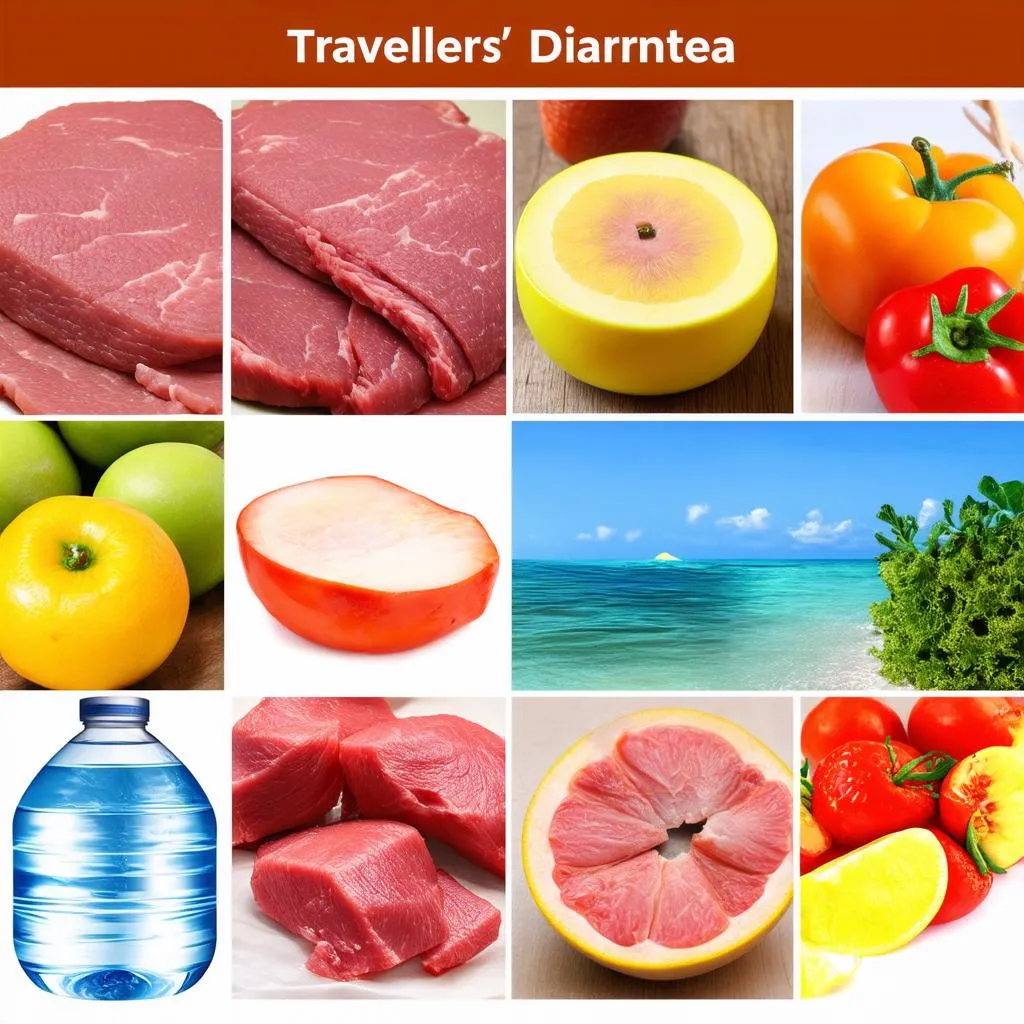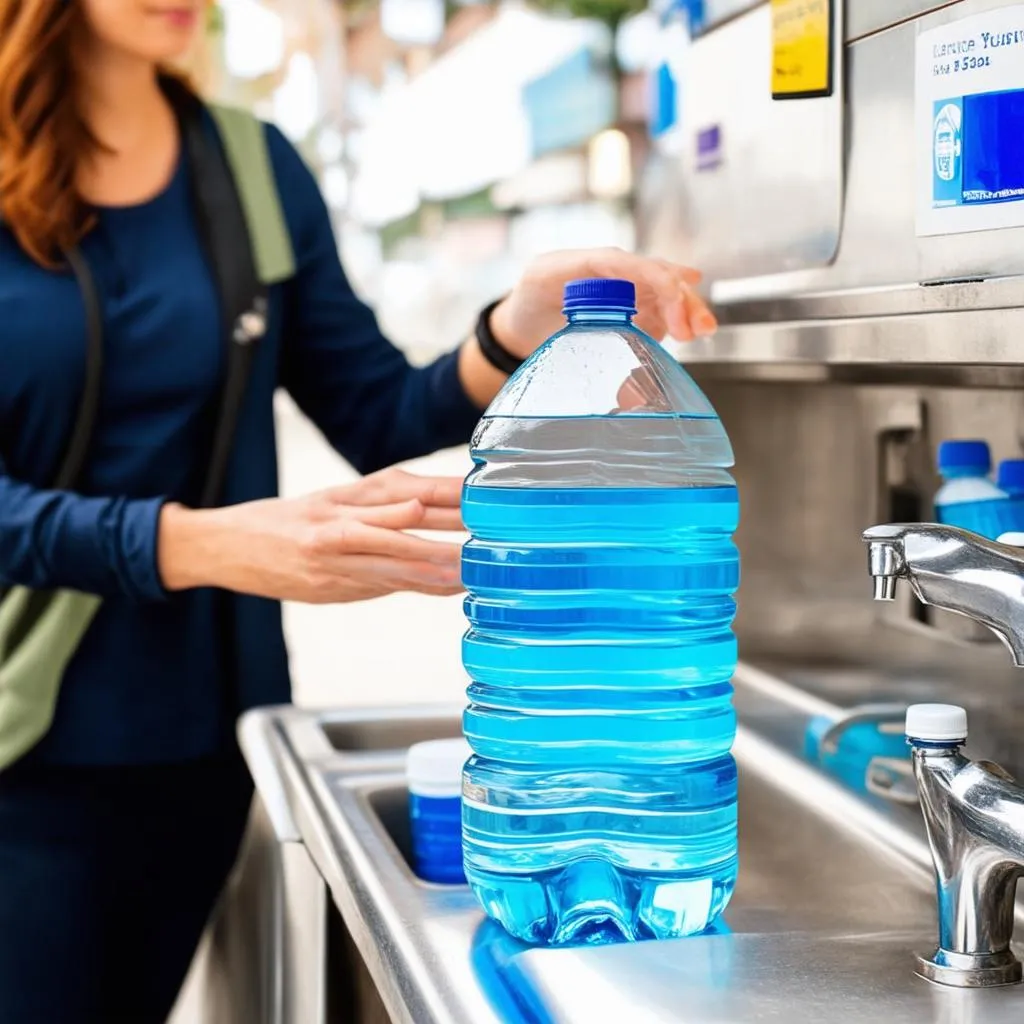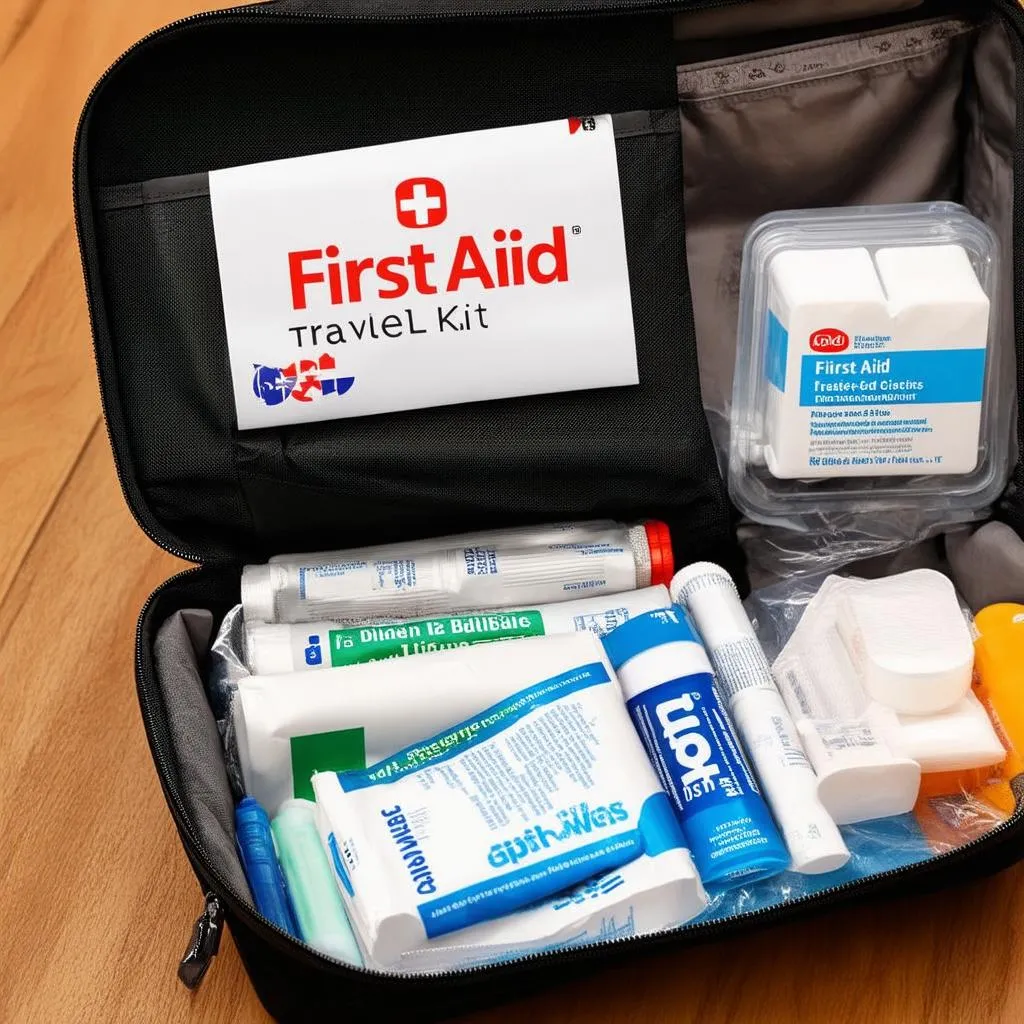Have you ever been struck down by the dreaded traveler’s diarrhea, also known as TD, while exploring a new and exotic destination? Imagine this: you’re strolling down Las Ramblas in Barcelona, soaking in the vibrant atmosphere, and BAM – your stomach decides to stage a revolt. Don’t worry, we’ve all been there. Traveler’s diarrhea is more common than you think, especially when venturing outside your comfort zone and trying new cuisines. But fear not, intrepid explorer! This guide is packed with practical tips and remedies to help you treat and prevent traveler’s diarrhea, so you can get back to enjoying your adventures.
Understanding the Enemy: What is Traveler’s Diarrhea?
Traveler’s diarrhea is characterized by loose, watery stools, often accompanied by other unpleasant symptoms like abdominal cramps, nausea, bloating, and even fever. It’s typically caused by ingesting contaminated food or water harboring bacteria, viruses, or parasites that are unfamiliar to your system.
Common Culprits
While the prospect of encountering these microscopic mischief-makers might seem daunting, understanding the usual suspects can help you make informed choices. Some common culprits include:
- Bacteria: E. coli, Salmonella, Shigella, and Campylobacter are frequent offenders lurking in undercooked meat, seafood, and unwashed fruits and vegetables.
- Viruses: Norovirus and rotavirus can spread quickly through contaminated food and water, especially in areas with poor sanitation.
- Parasites: Giardia and Cryptosporidium can contaminate water sources, even in seemingly pristine environments.
 Traveler's diarrhea causes
Traveler's diarrhea causes
How to Treat Traveler’s Diarrhea: Your Road to Recovery
The good news is that traveler’s diarrhea is usually self-limiting, meaning it resolves on its own within a few days. However, there are steps you can take to alleviate the symptoms and speed up your recovery:
1. Hydration is Key
One of the most crucial aspects of treating traveler’s diarrhea is staying hydrated. Frequent bouts of diarrhea can lead to dehydration, which can worsen your symptoms and delay recovery.
- What to drink: Stick to clear liquids like water, oral rehydration solutions (ORS), clear broth, or diluted fruit juice. ORS, which you can find at most pharmacies, are particularly helpful as they contain electrolytes like sodium and potassium, which are lost through diarrhea.
- What to avoid: Steer clear of sugary drinks, caffeinated beverages, and alcohol, as these can further dehydrate you.
2. Food as Medicine
While it might seem counterintuitive to eat when your stomach is rebelling, certain foods can actually help soothe your digestive system and provide essential nutrients:
- BRAT Diet: The BRAT diet, consisting of bananas, rice, applesauce, and toast, is a time-tested remedy for diarrhea. These bland foods are easy to digest and can help bind stools.
- Other gut-friendly options: Plain yogurt with live and active cultures can introduce beneficial bacteria to your gut, aiding digestion. Boiled potatoes, cooked carrots, and white rice are also gentle on the stomach.
3. Over-the-Counter Relief
Over-the-counter medications can provide relief from specific symptoms:
- Loperamide (Imodium): This anti-diarrheal medication can help slow down bowel movements.
- Bismuth subsalicylate (Pepto-Bismol): This medication can reduce inflammation in the gut and decrease the frequency of diarrhea.
Important note: While these medications can be helpful, it’s essential to consult a healthcare professional before taking them, especially if you have pre-existing medical conditions or are taking other medications.
4. When to Seek Medical Attention
While most cases of traveler’s diarrhea resolve on their own, it’s important to be aware of signs that warrant medical attention:
- High fever (over 102°F or 39°C)
- Blood or mucus in your stool
- Severe abdominal pain
- Dehydration (excessive thirst, dry mouth, dizziness, dark urine)
- Symptoms lasting longer than a few days
If you experience any of these symptoms, don’t hesitate to seek medical attention immediately.
Preventing Traveler’s Diarrhea: Your Best Defense is a Good Offense
As the old adage goes, prevention is better than cure. While you can’t completely eliminate the risk of traveler’s diarrhea, especially when immersing yourself in new culinary adventures, you can significantly reduce your chances of falling prey to it.
Food and Water Safety Tips
- “Boil it, cook it, peel it, or forget it”: This classic traveler’s mantra still holds true. Stick to food that’s been thoroughly cooked and served hot. Peel fruits and vegetables yourself, or opt for those that have been washed in safe water.
- Beware of street food: As tempting as those sizzling skewers from a street vendor in Bangkok might be, it’s best to exercise caution. Look for vendors with long lines and high turnover, indicating fresh food.
- Water wisdom: Drink bottled water from a reputable source, and ensure the seal is unbroken. Use bottled water for brushing your teeth, washing fruits and vegetables, and even for ice in your drinks.
- Hand hygiene: Frequent and thorough handwashing is your best defense against germs. Wash your hands with soap and water before eating, after using the restroom, and after touching surfaces in public areas. If soap and water aren’t readily available, carry hand sanitizer with at least 60% alcohol.
 Safe food and water while traveling
Safe food and water while traveling
Planning Ahead: Your Pre-Trip Checklist for Digestive Harmony
Preparation is key to a smooth and enjoyable trip. Here are a few things to consider before you embark on your adventure:
- Consult a travel health specialist: They can provide personalized advice based on your destination, health history, and vaccination recommendations.
- Pack a traveler’s diarrhea kit: This could include over-the-counter medications (like loperamide or bismuth subsalicylate), oral rehydration salts, and a probiotic supplement.
- Consider travel insurance: Travel insurance can provide peace of mind, covering medical expenses and trip interruptions should you encounter any health issues during your travels.
Travel with Confidence and Enjoy the Journey
Remember, experiencing a bout of traveler’s diarrhea doesn’t have to derail your entire trip. By understanding the causes, taking preventive measures, and knowing how to treat the symptoms, you can navigate this common travel ailment with confidence and get back to enjoying all the wonders your destination has to offer.
Pro-tip: For more travel health tips and insights, visit travelcar.edu.vn to ensure your next adventure is a healthy and memorable one!
FAQs: Your Questions About Traveler’s Diarrhea Answered
Q: Can I prevent traveler’s diarrhea entirely?
A: While you can significantly reduce your risk by following food and water safety precautions, it’s impossible to eliminate the risk completely, especially when traveling to areas with different sanitation standards.
Q: How long does traveler’s diarrhea typically last?
A: Most cases resolve within a few days, but it can sometimes linger for up to a week. For more information on how long traveler’s diarrhea can last, check out this insightful article: [link to https://travelcar.edu.vn/how-long-can-travelers-diarrhea-last/]
Q: When should I be concerned about traveler’s diarrhea?
A: If you experience a high fever, blood or mucus in your stool, severe abdominal pain, dehydration, or symptoms persisting for more than a few days, seek medical attention immediately.
Q: Can I take probiotics to prevent traveler’s diarrhea?
A: Some studies suggest that probiotics might help prevent traveler’s diarrhea, but more research is needed. If you’re considering taking probiotics, consult your healthcare provider to determine the best strain and dosage for you.
Q: What are some natural remedies for traveler’s diarrhea?
A: In addition to the BRAT diet, consider incorporating ginger, peppermint, and chamomile, known for their soothing properties, into your diet.
Q: Can I get traveler’s diarrhea from swimming in a hotel pool?
A: While it’s less common than getting it from food or water, it’s possible to contract traveler’s diarrhea from contaminated water in swimming pools, especially if the chlorine levels are not properly maintained.
 First-aid kit for travel
First-aid kit for travel
We hope this comprehensive guide equips you with the knowledge and tools to tackle traveler’s diarrhea head-on. Remember, a little preparation and awareness can go a long way in ensuring a healthy and enjoyable journey. Safe travels!